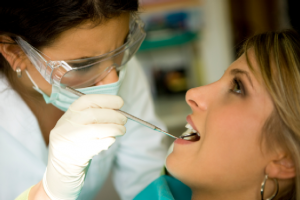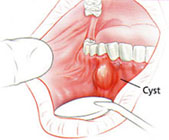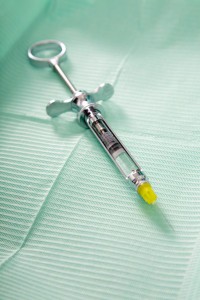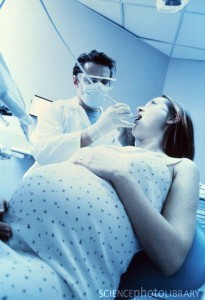Sometimes you may hear the term ‘biopsy’ when investigations are required for certain lesions in the mouth. Biopsy sounds like a scary procedure that brings the word ‘cancer’ to mind but in fact it is just an aid for diagnostic purposes. Continue reading
Tag Archives: local anesthesia
How to Treat a Jaw Cyst
A cyst is defined as a pathological cavity having fluid or semi-fluid contents, which has not been created by the accumulation of pus. Cysts of the jaws are more common than in any other bone, and the majority are lined wholly or in part by epithelium. Continue reading
Complications in Local Anesthesia
Inserting a foreign body into our body may bring risk of complications. The same goes for injecting local anesthetic agents or pain numbing solution into the mouth for a dental procedure. Complications in administrating dental anesthesia may occur due to preventable or unpreventable circumstances. Continue reading
Dental Treatments to Avoid When You Are Pregnant Part 2
Continued from Part 1
Dental treatment is best carried out during the second trimester, but advanced restorative procedures are probably best postponed until the state of the gums improves after giving birth and prolonged sessions of treatment are better tolerated. In the second and third trimesters the fetus is growing and maturing but can still be affected by infections, drugs and possibly other factors. In the third trimester the supine hypotension syndrome may result if the pregnant woman is laid flat. The person should therefore be put on one side to allow blood return to recover. Some pregnant women also have a hypersensitive gag reflex. Elective dental care should be avoided in the last month of pregnancy, as it is uncomfortable for the patient. Moreover premature labor or even abortion may also be attributed, without justification, to dental treatment. Continue reading
Wisdom Teeth Removal: General Vs. Local Anesthesia
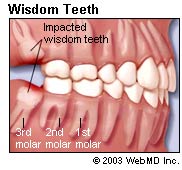 Wisdom teeth removal are frequently done for wisdom tooth tend to have not enough room to erupt in the jaws, being the last tooth to develop and emerge from the mouth (normally between 18 to 24 years of age), which can cause them to be impacted. If the path of eruption of the tooth is blocked by another tooth or bone which therefore prevents it from assuming a normal position in the mouth, it is called an impacted tooth. Â Continue reading
Wisdom teeth removal are frequently done for wisdom tooth tend to have not enough room to erupt in the jaws, being the last tooth to develop and emerge from the mouth (normally between 18 to 24 years of age), which can cause them to be impacted. If the path of eruption of the tooth is blocked by another tooth or bone which therefore prevents it from assuming a normal position in the mouth, it is called an impacted tooth. Â Continue reading
